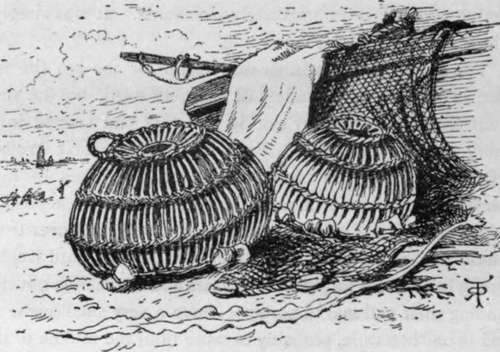Introductory. Charts, Tides, Etc. Part 10
Description
This section is from the book "Sea Fishing", by John Bickerdyke. Also available from Amazon: Sea Fishing.
Introductory. Charts, Tides, Etc. Part 10
Never on salmon river or trout stream have I enjoyed more splendid fly fishing than has fallen to my lot from Filey Brigg. Sometimes so eager were the fish, that if one missed the fly another was hooked immediately afterwards. It was simply a fight against time and a rising tide.
The enthusiastic sea fisher may claim for the- sea the first place in respect of the variety of sport afforded, but he must admit that on its literary side it is a very bad second in its rivalry with river and lake. From the time of Izaak Walton, freshwater fishing has been the subject of a series of most charming works, some of them in parts almost prose poems ; and a fascination, I may say glamour, has been cast over trout, salmon and some other fish, which will remain until English angling literature is forgotten. Sea fish and sea fishing, notwithstanding their national importance, have a very small niche indeed in our literature, probably because until the middle of this century the coarseness of the tackle commonly used deterred most anglers, so many of whom are men of refined literary tastes, from seeking their favourite sport in salt water. But the tackle was not the only drawback, for certain unpleasant qualms, which Father Neptune only spares us in his kinder moments, no doubt prevent many from sea fishing from boats. For this reason I have laid emphasis, both here and later, on the fact that there are in Scotland and Ireland, and more rarely in England, wholly or partially land-locked places where fish are at times abundant and the disturbing undulations of the water almost unknown. There the good fisherman but bad sailor may angle in peace, comfort, and contentment.
On the whole I incline to the opinion that sea fishing as a sport has a great future before it. Certainly it has made great strides in popularity of late years.

Continue to:
- prev: Introductory. Charts, Tides, Etc. Part 9
- Table of Contents
- next: Chapter II. Round The British And Irish Coasts
Tags
fishing, hooks, bait, fishermen, spanish mackerel, mackerel fishing
